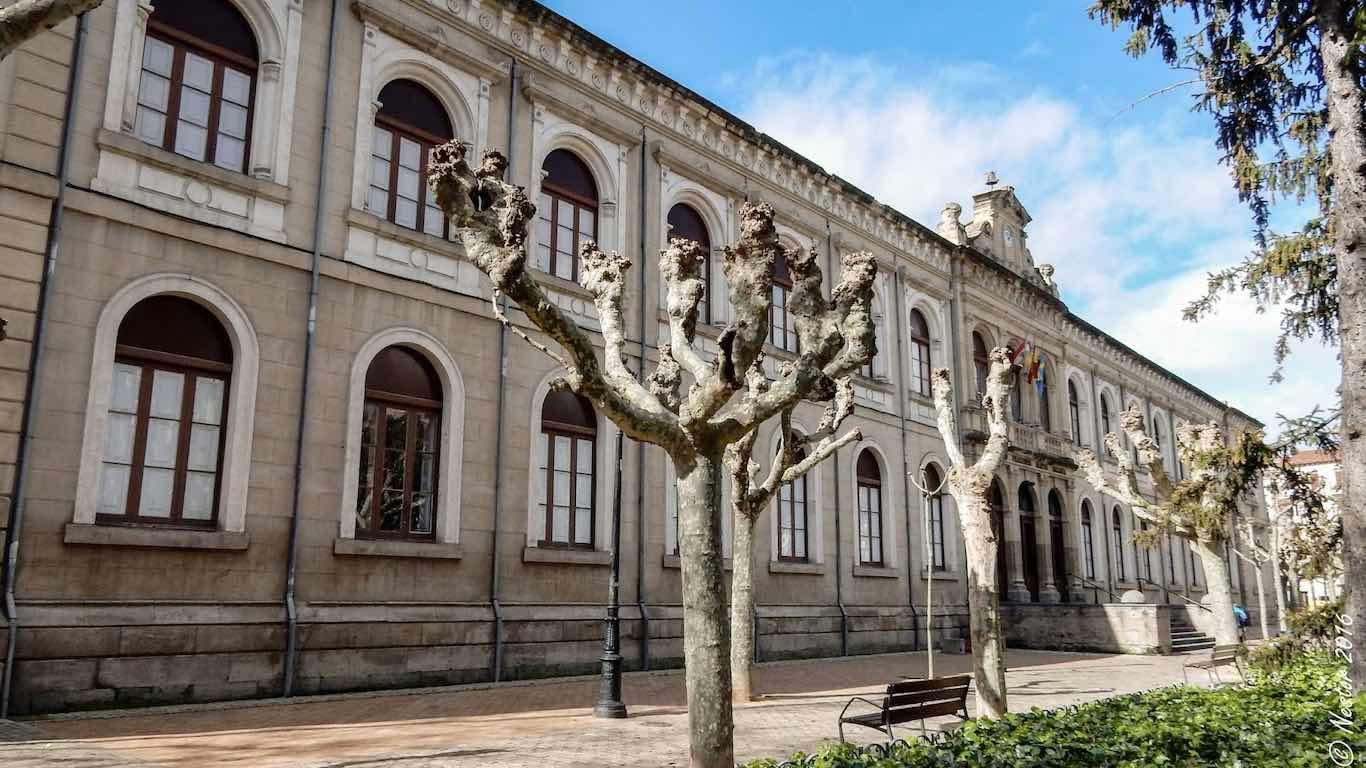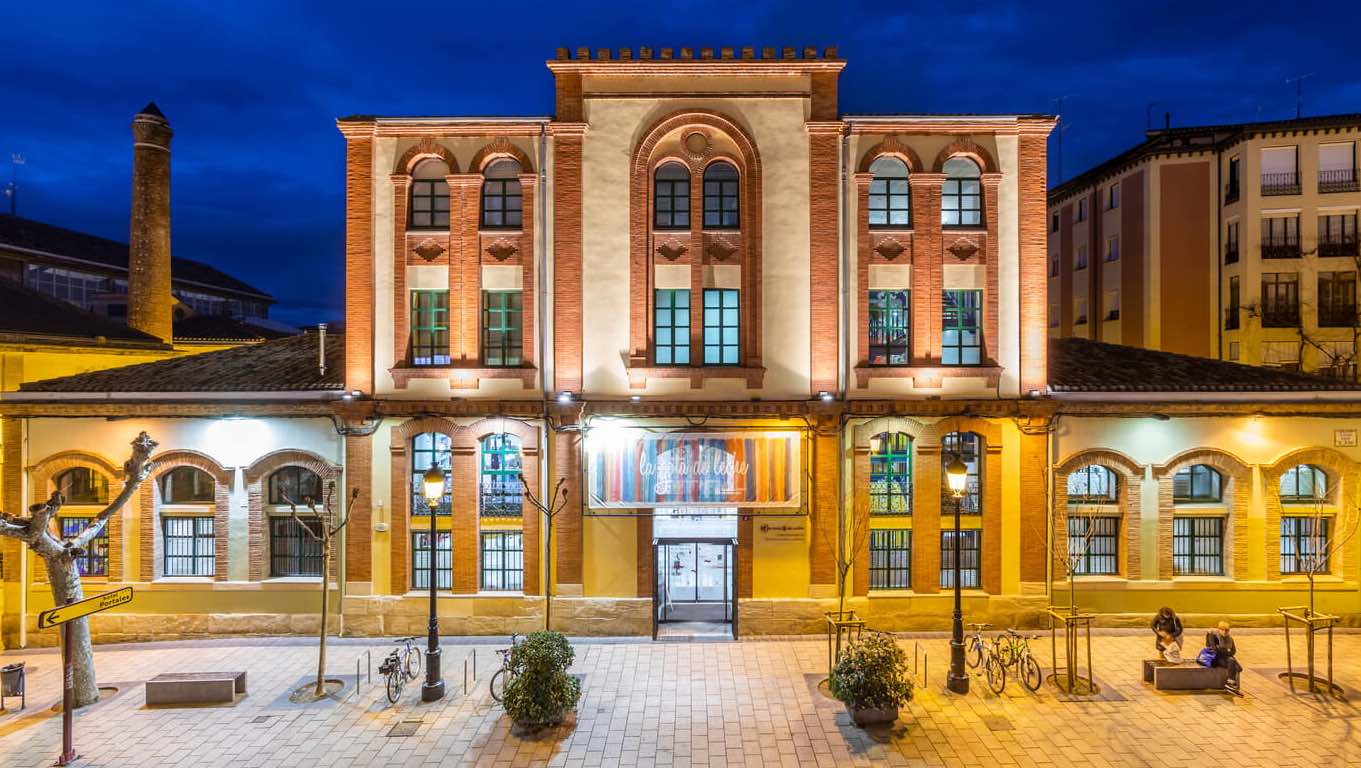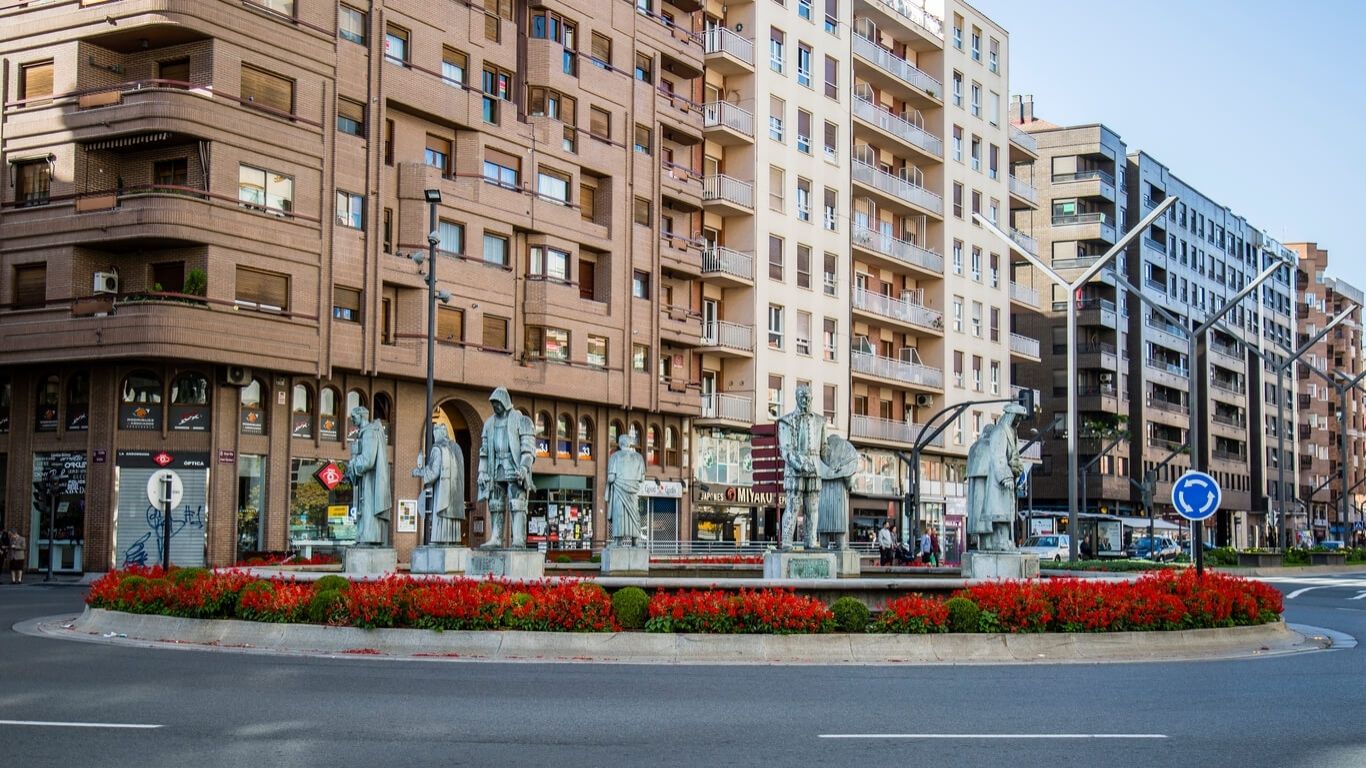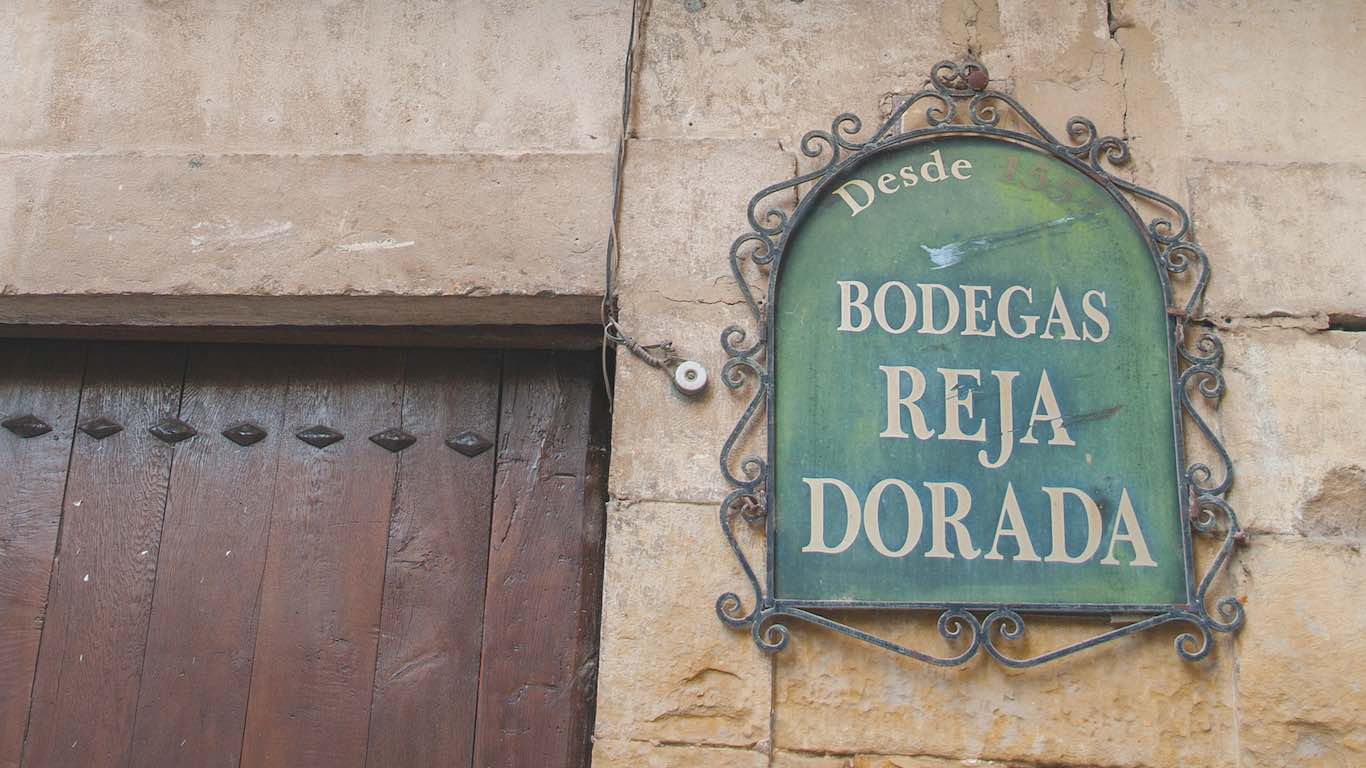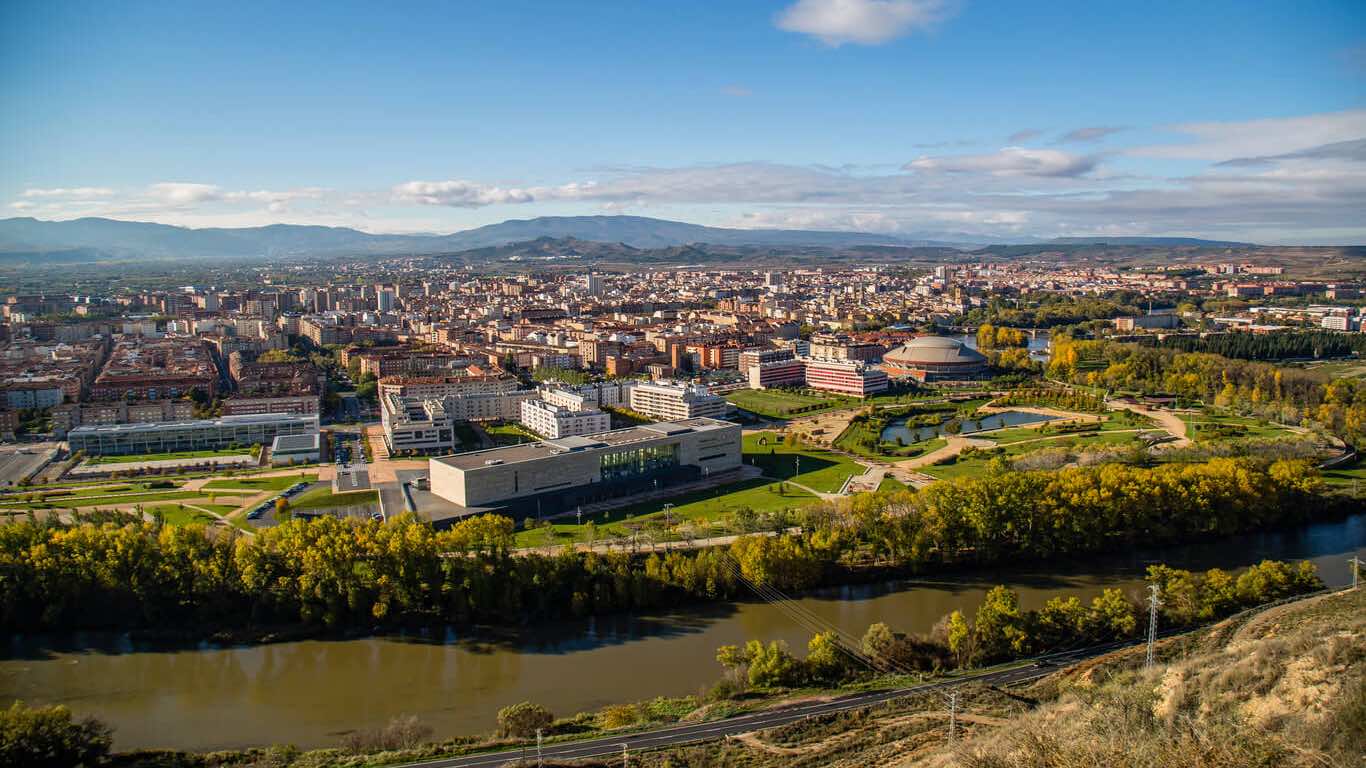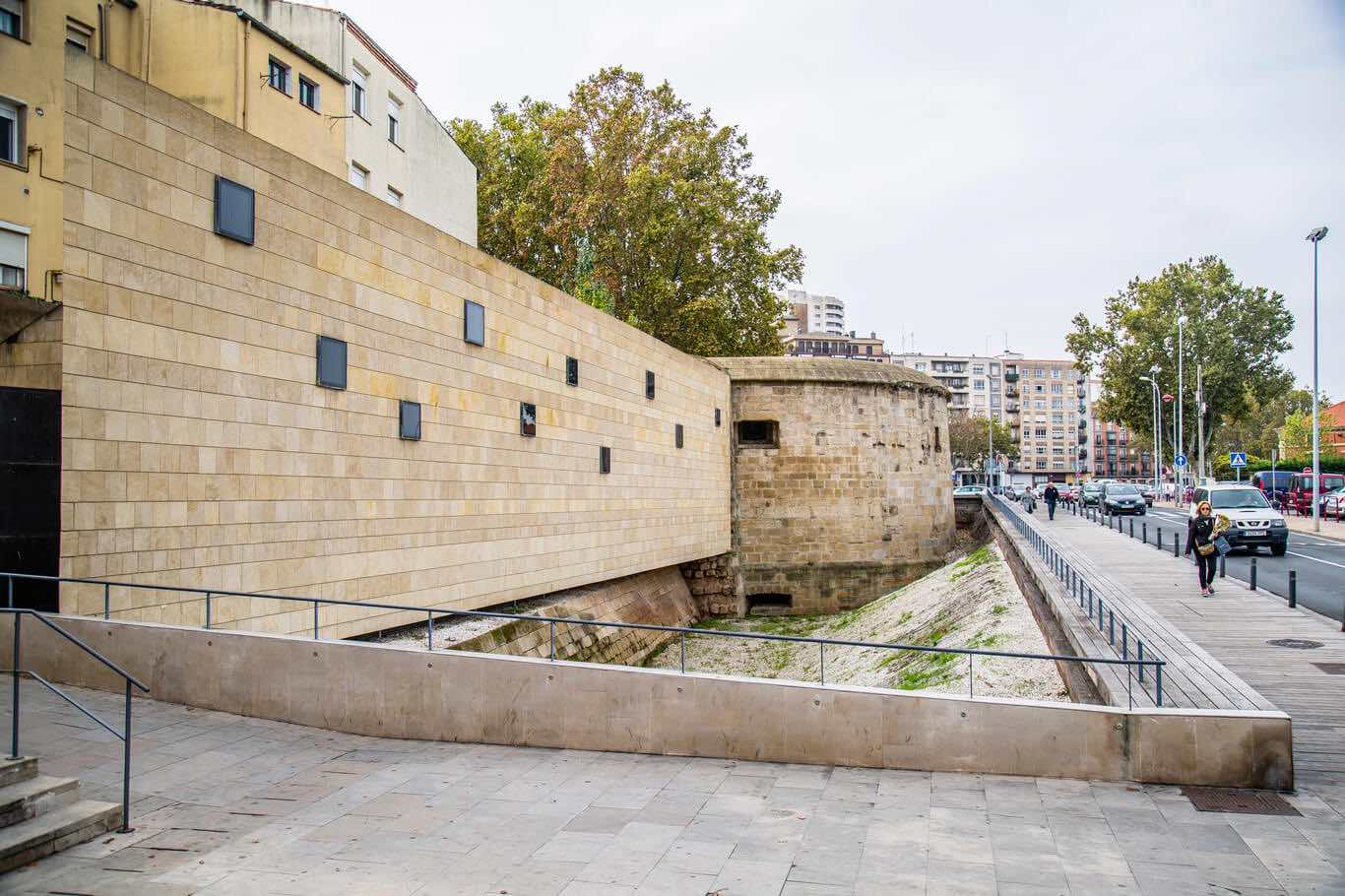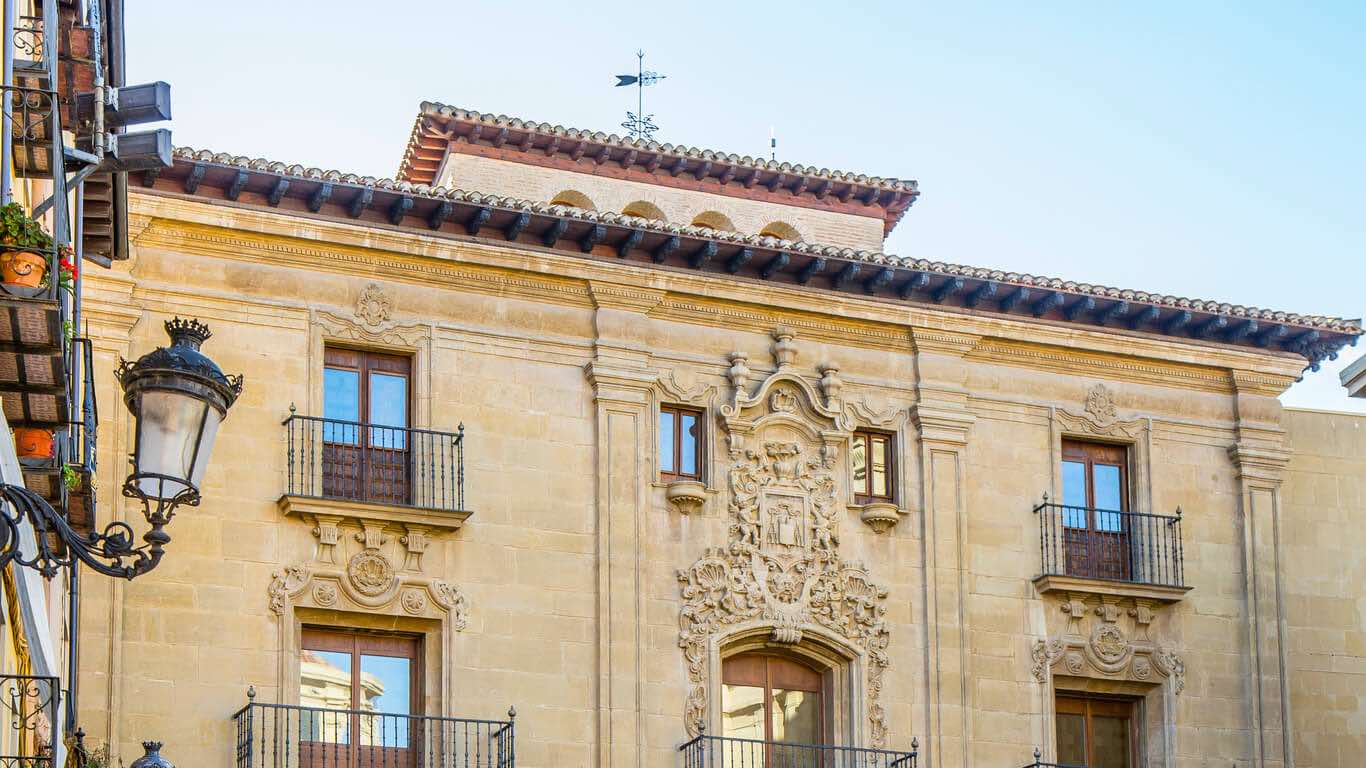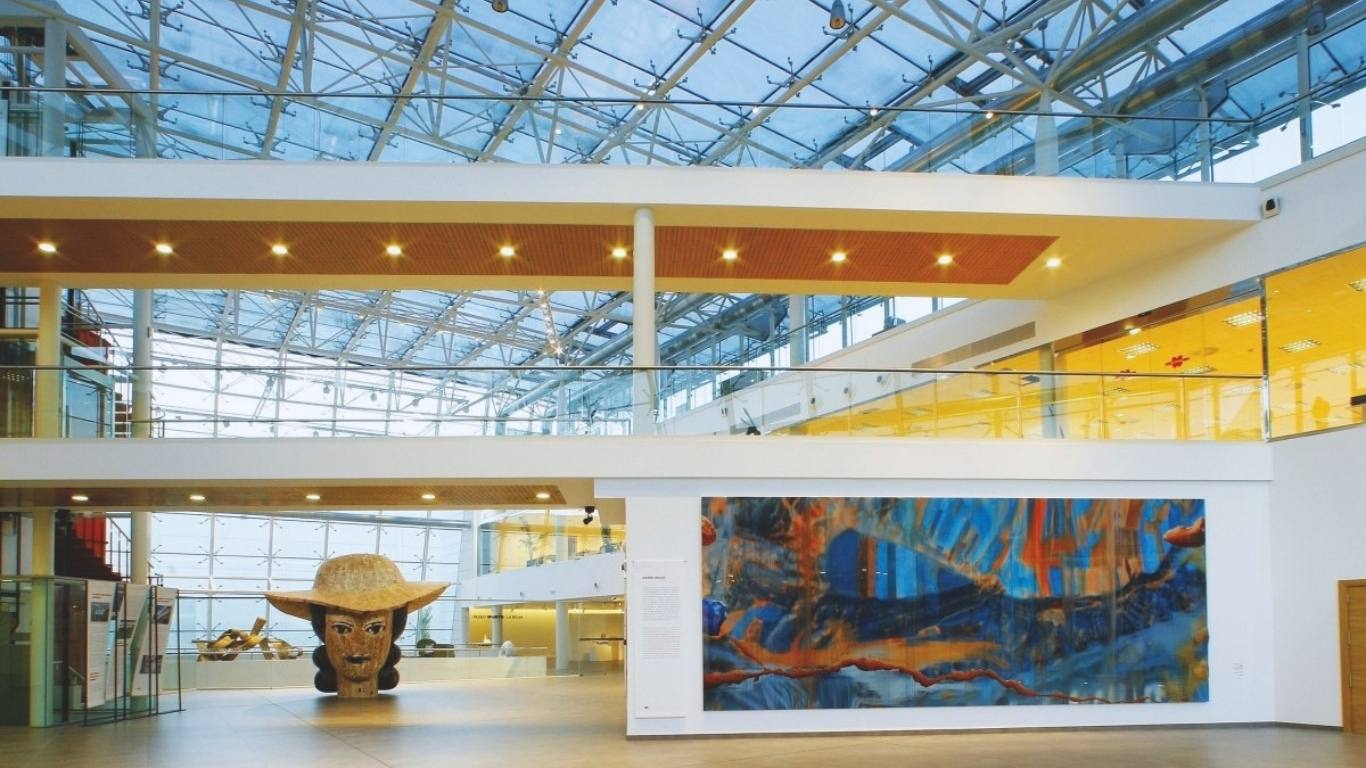What to see?
The IES Práxedes Mateo Sagasta building or Sagasta High School, as it is known familiarly by the people of Logroño, islocated near to ESDIR (School of Arts and Design Superior of La Rioja), the first in the Glorieta del Doctor Zubía and the second in Avenida de la Paz, before reaching the City Hall.
La Gota de Leche (Drop of Milk), Center for Youth and Artistic Resources of the City of Logroño, is a multifunctional space created so that young people can create, discover and express their cultural and artistic skills.
La Gran Vía, as the Gran Vía Juan Carlos I avenue is popularly known and abbreviated, it is located bordering the old town, in the center of Logroño, separating the old and modern parts of the city.
Ruavieja Street was important for wine production from the Middle Ages to the 19th century.
The Monte Cantabria facilitates a privileged natural viewpoint over Logroño and the banks of the Ebro.
The Cubo del Revellín and City Walls are the remains of the medieval fortifications of Logroño. The Cubo del Revellín (tower located in the northwestern corner of the old walls) and the west gate are well preserved.
The Museum of La Rioja is located in San Agustín Square in a Baroque building dating from the 18th-century also known as Espartero Palace.
The Würth La Rioja Museum is located located in the El Sequero industrial estate in the town of Agoncillo, fifteen minutes from downtown Logroño.
